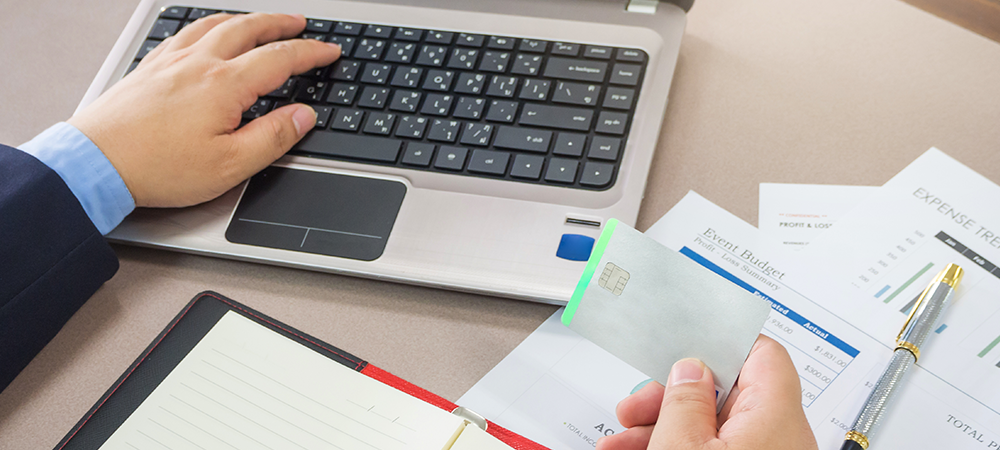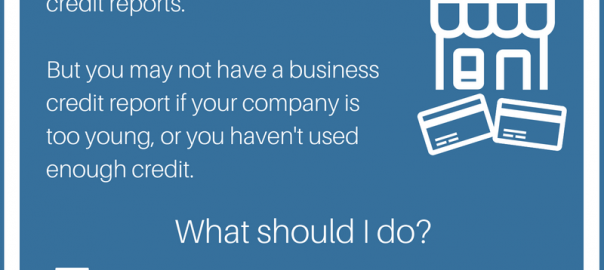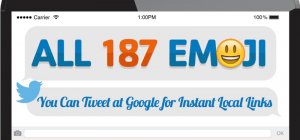— August 29, 2018

What is business credit?
When’s the last time you checked your business credit score? If you’ve never checked it before, you’re not alone – nearly half of small business owners don’t even know they have one.
Like personal credit, business credit is used to determine a business’ borrowing and lending abilities. It’ll be checked when you apply for business loans or when other companies want to ensure you are financially reliable before doing business with you.
Small business owners often make the mistake of assuming business credit is the same as personal credit. But, without understanding the key differences between the two, you could be putting your business’ overall security and reputation at risk.
Business Vs. Personal Credit
Business owners are commonly denied loans because they do not understand how business credit works. In fact, 82 percent of owners who were aware of their business credit score did not know how to interpret it.
Your business credit score is determined by your business’ financial activity, which is captured in your business credit report. Again, like personal credit, a business credit report contains identifying information about your business (i.e. Employer Identification Number (EIN), physical and mailing addresses), as well as sensitive financial information like account numbers and trade references.
So, what’s the difference between personal and business credit? To start, business credit is completely public and accessible to anyone willing to pay for a report.
Public Without Industry Standard
Business credit, unlike personal credit, is kept public for transparency purposes. Additionally, there is no “industry standard” for business credit – meaning each credit reporting agency has their own way of calculating your business’ credit score.
Public or not, your business credit information is still used to define your business’ financial health and lending abilities. For example, most companies will check your business credit report first before extending you a loan for goods and services.
Business Identity Crime
Understanding the ins and outs of business credit can help protect your business in more ways than one. Fraudsters may take a direct approach to accessing your credit information, while others may use more subtle techniques that are much harder to detect.
In the eyes of the Internal Revenue Service (IRS), businesses have identities just like people. An EIN is assigned to each business, like a Social Security number, for tax reporting and licensing purposes.
“Small business owners may not be aware of the problems that can occur [when they mix personal information with their business]. By associating your personal information with your business identity, you may expose more than you realize just by losing your wallet, briefcase or laptop.”
– Robyn Nolker, quality and training manager at EZShield’s Resolution Center
These numbers are recognized by the government as a business’ financial identity. Similar to Social Security numbers, EINs – paired with other identifying information like the owner’s name or the business’ physical address – can be used to fraudulently apply for loans, open new accounts and credit lines or claim tax returns in the business’ name.
The risk of fraud is even greater when business owners choose to comingle their personal and business information. Even with fraudsters specifically targeting small businesses in data breaches and cyberattacks, 1 in 5 small business owners still use personal assets to fund their entrepreneurial dreams.
Personal guarantees put business owners at risk
Many lending institutions will not approve loans for a business that does not have established credit. As such, these institutions offer another option for owners: agree to a “personal guarantee.”
The guarantee deems the owner personally responsible for the business loan if payments cannot be made. Therefore, small business owners often comingle their personal and business information to avoid loan rejection.
But Robyn Nolker, quality and training manager at EZShield’s Resolution Center, notes that business owners end up risking more by doing less when they comingle personal and business data.
“Small business owners may not be aware of the problems that can occur [when they mix personal information with their business],” Nolker said. “By associating your personal information with your business identity, you may expose more than you realize just by losing your wallet, briefcase or laptop.”
What should I do?
Regardless of size or industry, all businesses can benefit from having a better understanding of their business credit. Use the protection tips below to help steer clear of fraud and identity theft risks related to your business credit:
- Check your business credit score regularly. Remember that your score may be different from bureau to bureau.
- Check your business credit report regularly. This document can help you spot fraudulent accounts opened in your business’ name.
- Be wary of email and social engineering scams. Fraudsters may try to capture your sensitive business information through phishing and other social engineering scams.
- Separate business and personal information. The more you comingle, the more you could lose if the data is compromised in a data breach or cybersecurity event.
Business & Finance Articles on Business 2 Community
(50)





